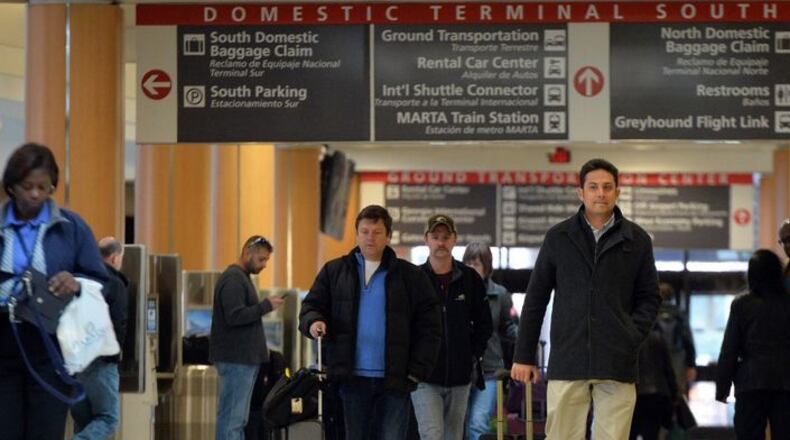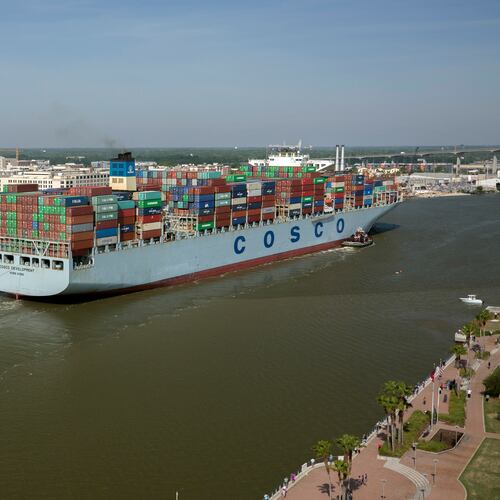The Atlanta City Council will weigh a proposed 20-year lease deal for Delta Air Lines' operations at Hartsfield-Jackson International Airport.
Delta has its headquarters in Atlanta and operates the world's largest single airline hub at Hartsfield-Jackson, as the dominant carrier with nearly 1,000 daily departures.
Credit: Kelly Yamanouchi
Credit: Kelly Yamanouchi
Hartsfield-Jackson's general manager Miguel Southwell has said the deal will cement Delta's headquarters in Atlanta for at least the next two decades.
The proposed lease includes language that states that Delta agrees to maintain its headquarters in Atlanta or within 15 miles of the airport. If it does not, the airline would be in default of the agreement.
The agreement, as first reported by The Atlanta Journal-Constitution on Monday evening, also includes language relating to the idea of a second airport for Atlanta.
It states that the city of Atlanta "does not currently plan to and will not own or operate any other commercial service airport" other than Hartsfield-Jackson, "and will not include any other airports of any type, as a part of any City airport system," according to the agreement to be weighed by the city council.
The new deal is for a much longer-term agreement than the current seven-year lease extension that expires in September 2017. The proposed new lease extends through June 2036 and includes an option for a 10-year extension.
It comes as Delta CEO Richard Anderson, who has established a close relationship with Atlanta Mayor Kasim Reed, prepares to retire May 2. The next meeting of the Atlanta City Council transportation committee, which oversees the airport, is scheduled for April 27.
An airline lease with Delta as the large hub carrier at Hartsfield-Jackson can have far-reaching effects on the future of the world's busiest airport, including expansion projects, the revenue the airport brings in and how easy or difficult it is for competing airlines to expand in Atlanta. The airport's 20-year master plan outlines major projects including a sixth runway and additional concourses.
The proposed lease outlines how Delta will pay landing fees and lease rates. Southwell has emphasized his interest in keeping the Atlanta airport’s lease rates among the lowest in the country.
When it comes to airline competition, the lease includes no exclusive use gates, but grants preferential use to airlines for some gates and designates some gates as common use. If an airline's usage of its preferential use gates does not meet established standards, the city can recapture the gates, which could allow it to offer the gates to another airline.
That can become an issue when a new airline wants to enter a city. The details of how airlines get gate space led to a lawsuit involving Delta and competitor Southwest Airlines at Dallas Love Field.
In the proposed Delta lease at Hartsfield-Jackson, one section of the deal outlines the types of projects that are pre-approved and not subject to approval by Delta through the lease's "majority-in-interest" process.
That "majority-in-interest" clause became an issue in the last round of lease negotiations, when the Federal Aviation Administration said such clauses could be anti-competitive.
Atlanta city council member Felicia Moore, who sits on the transportation committee, said that particularly due to previous issues with the majority-in-interest clause and other matters, "I'm hoping that we take time to evaluate it... to understand what's in the agreement" and address issues of contention.
About the Author
Keep Reading
The Latest
Featured





